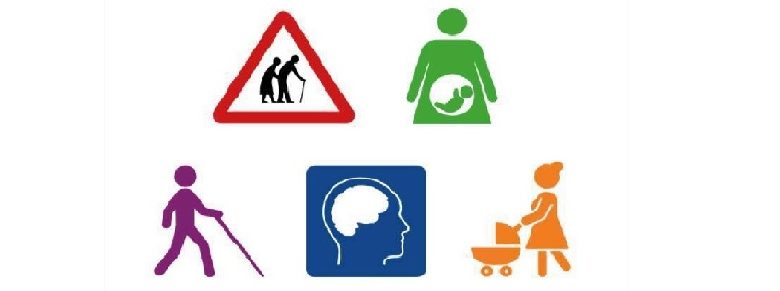
From becoming disabled to interviewing disabled celebrities as a journalist and activist
In 2015, after becoming disabled in later life, Simon Sansome set up the Ability Access blog and Facebook group where people can share good and bad accessibility experiences. It now has nearly 10,000 likes and the same number of followers. He also decided to retrain as a journalist and now interviews disabled celebrities for his podcast, While Disabled. Read on to discover Simon’s path to becoming a disabled blogger and activist.
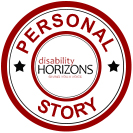 Before my injury, I worked for adult social care social services, specialising in adult mental health and physical disabilities. I also played a number of sports and did a bit of writing on the side. But that all changed in 2014 when I went from working with disabled people to becoming one.
Before my injury, I worked for adult social care social services, specialising in adult mental health and physical disabilities. I also played a number of sports and did a bit of writing on the side. But that all changed in 2014 when I went from working with disabled people to becoming one.
Just one month after my wedding, I had a spinal injury and lost all sensation from my waist down. I now use a wheelchair or mobility scooter to get around.
Accessibility – or the lack of it
Before my accident, I was a very active and social person, and I didn’t want my disability to change that.
After around a year of getting to grips with my new-found disability, I started trying to get back to ‘normal’. But I very quickly learned how many barriers disabled people face every day.
My first taste of it was when my wife and I went to our favourite restaurant for dinner, only to discover that we weren’t able to get past the front door. It’s something I would never have considered before. But, suddenly, I become all too aware of the limitations society puts in the way of so many disabled people.
Creating Ability Access
The Access Ability blog and Facebook page came about as a way for me to raise awareness of accessibility issues, and for others to talk about access problems and share examples of good and bad practice.
In the first three months, I had 20 followers, but almost no hits, no pictures, no videos. It was just something to keep me occupied and get my mind off the struggles I faced.
However, by 2016 I had around 2,500 followers. It was going from strength to strength. But it didn’t really take off until last year when I started my podcast.
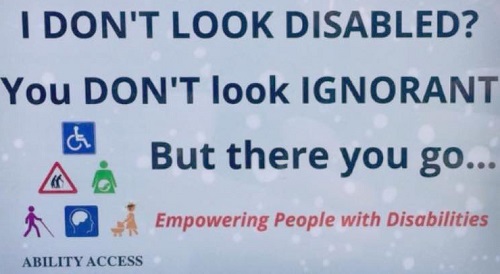
Retraining for a new career
My injury meant I wasn’t able to go back to work. So, in 2015, I decided to go to university to study journalism, enabling me to could work as a freelancer in my own time.
Once I graduated, I decided I needed an idea that would really grab people’s attention and make me stand out from the crowd. I came up with While Disabled, a disability podcast where I would interview disabled celebrities.
I approached a number of organisations and big corporations, such as the BBC, asking for support of the project. But it was Audioboom, a podcast platform, that gave me the chance to start While Disabled.
My disabled celebrity podcasts
The aim podcast is to give people the chance to hear disabled celebrities life stories, and about how disability has affected them. I also ask for tips on how they have learnt to cope with having a disability, whether they become disabled in later life or were born with it.
There is no holding back. It is just two people, talking about disability, as if we are friends sitting in a pub. It’s a relaxed, listening environment, where we don’t have to worry about rules and regulations, but instead, just say what we feel.
It has a comical element too with a ‘what not to say to a person with a disability’ section and quickfire questions.
The disabled celebrities I have interviewed
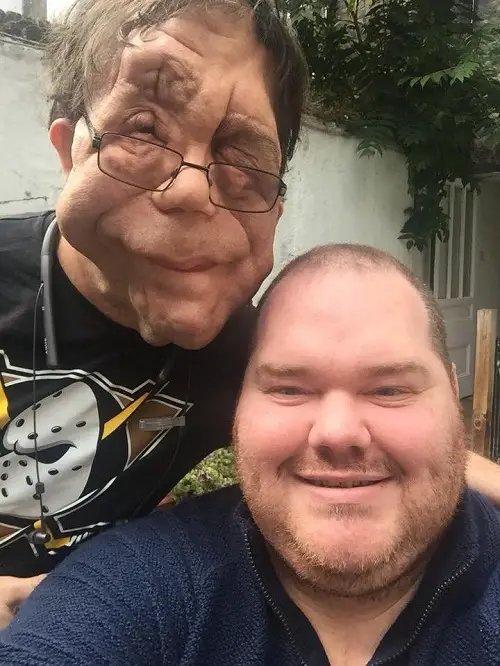
When I came up with the concept, I had no idea who I was going to interview. I simply started googling people and contacting the management of celebrities, or getting in touch with them via Twitter.
I also had no budget for the show, so simply asked celebrities whether they’d do an interview free of charge. I think they agreed to be involved as they have all been campaigning for disability awareness for years and this was an excellent opportunity to get the message out there. The free meal I was offering while getting an opportunity to chat about themselves probably helped too!
In doing the podcasts, I’ve met some absolutely incredible people and had the most amazing time. I’ve interviewed:
- Dan White, who has a disabled daughter.
- TV presenter Adam Pearson, who I now class as a friend.
- Comedian Rosie Jones, who is one of the funniest people I’ve ever met;
- Tanni Grey Thompson, who I interviewed at the Houses of Parliament and was absolutely lovely. We still keep in contact via email.
My favourite interview so far has been with Rosie Jones. I had seen on TV, but I was so impressed by how quick-witted she is. She’s also one of the loveliest people I have ever met. We spent a good three to four hours, just two of us, simply sitting around recording and laughing our heads off.
Rosie Jones podcast
You can listen to the While Disabled episode with Rosie Jones below.
The future of While Disabled and Access Ability
Off the back of the podcasts, Ability Access has become a phenomenon. It’s gone from having a few thousand followers to 20,000 collectively on Facebook, Twitter, Instagram and LinkedIn. I am now also getting more than 1 million interactions on social media a month, including likes, shares, pictures, videos and comments, as well as emails from people all over the world.
When you take all of the different platforms into account, including Audioboom and campaign petitions I have set up, and the number of shares, I calculate that each month we are reaching anywhere between 3.5 and 6.5 million people. It is more than I could have ever wished for.
It’s wonderful, but it really does take some management. The emails and comments, in particular, need monitoring to ensure no one puts up something vile or hurtful to another person. And, I must confess, some of the emails from other countries get lost in translation when talking about different laws, disabilities and social interactions. It’s tricky to get my head around, but it’s also a good learning curve.
This year at Naidex, where I went there to promote Ability Access and do a bit of networking, I had people actually coming up to me and asking for photos, saying; “Hello Simon, how are you?” I was not expecting that.
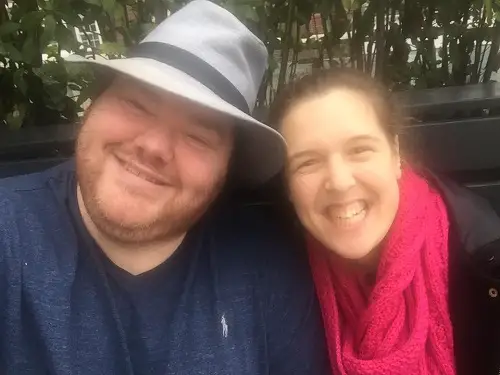
I have also started selling car bumper stickers, like the one above, with comedic phrases about disability. It started as a comical joke but has turned out to be a nice, little sideline business after selling a few hundred for £5 within the first week. The downside was that people wanted them from all over the world and the postage and packaging actually cost more than the stickers. So we now only send them out to others in the UK.
I am surprised and relieved that people are taking to the podcast and blog in such a positive way. It’s even had five-star reviews. Nothing like this has ever been on radio or a podcast before, and it’s the first time I have done something like it.
By Simon Sansome
You can visit Simon’s Ability Access blog and Facebook page for more accessibility information, and Audioboom for his While Disabled podcasts.
More on Disability Horizons…